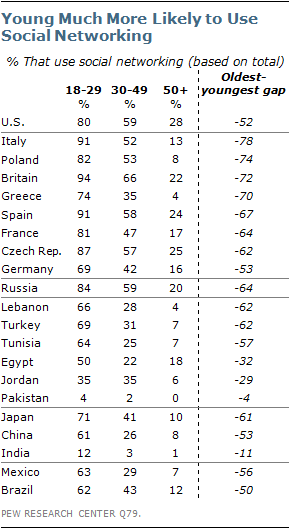The role of social media in 2011 Arab Spring uprisings will always be debated. Some argue that social media helped activists to coordinate and communicate with the protesters that sparked the revolt. While others may argue that social media was not actively embraced by the masses just before the Arab Spring. In the Middle East, Social Networking had a role to play during the Arab Spring in 2011 in terms of creating awareness in the world. A new report from PEW Research center suggests that the political discussions actively take place in the region on Social Networks. In countries like Egypt, Tunisia, Lebanon and Jordan political and religious discussions take place twice the rate of their Western counterparts.
The report also states that community related issues are actively discussed on Social Media channels. More than seven-in-ten users of social networking sites in Arab countries have posted about community issues on these sites, and at least six-in-ten have shared their views about politics.
The research doesn’t intend to reflect upon the social values or norms of any country. The report states that the most active group of Social Media users in Middle East are in the age group of 18-29. Britain as the highest number of Social Networking users in the age group of 18-29.
Use of social networking sites varies by education level, with double-digit differences between those with a college degree and those without a college degree in 15 of 18 countries. The widest gap is found in Egypt, where 81% of those with a college degree use social networking sites, compared with just 18% of those with less education.



